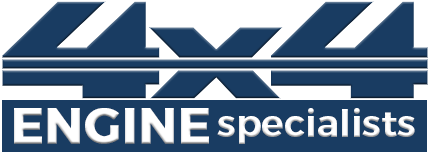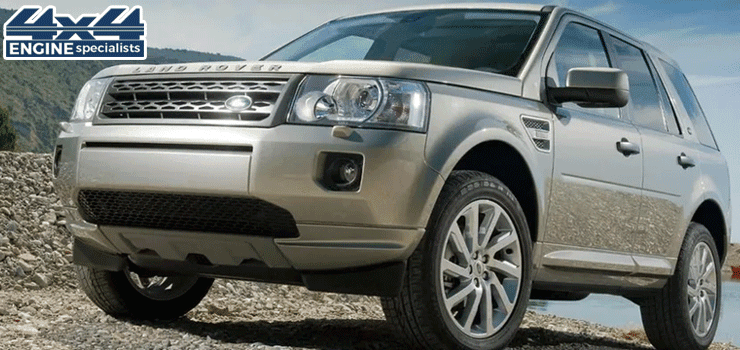When it comes to maintaining and enhancing the performance of a Land Rover Freelander, the choice between reconditioned and new engines is a critical decision. We delves into the reliability aspects of reconditioned Freelander engines compared to their brand-new counterparts. By exploring various factors such as cost-effectiveness, longevity, performance, and overall reliability, we aim to provide a thorough understanding to help Freelander owners make informed choices.
Understanding Reconditioned Engines
Reconditioned engines, also known as remanufactured or rebuilt engines, are essentially used engines that have undergone extensive refurbishment to restore them to like-new condition. The process typically involves disassembling the engine, cleaning all parts, replacing worn-out components with new or re-machined ones, and reassembling the engine to factory specifications. This meticulous process ensures that reconditioned engines meet high standards of performance and reliability. In contrast, new engines are factory-fresh and have never been used before. Understanding these fundamental differences is crucial for comparing their reliability.
Cost-Effectiveness: Initial Investment and Long-Term Savings
One of the primary considerations when choosing between a reconditioned and a new Range Rover Engine is cost. Reconditioned engines generally come at a significantly lower price than new ones, making them an attractive option for budget-conscious Freelander owners. The initial savings can be substantial, but it’s important to consider long-term costs as well. Reconditioned engines can offer excellent value for money if they come with comprehensive warranties and are sourced from reputable suppliers. However, potential hidden costs, such as more frequent repairs or shorter lifespan compared to new engines, should also be factored into the decision-making process.
Longevity and Durability: How Long Do They Last?
The longevity of an engine is a critical aspect of its reliability. New engines are designed and built to last for many years, often surpassing 100,000 miles with proper maintenance. Reconditioned engines, on the other hand, may have varying lifespans depending on the quality of the refurbishment process and the parts used. High-quality reconditioned engines, especially those rebuilt with OEM (Original Equipment Manufacturer) parts, can offer comparable longevity to new engines. However, the history of the engine, including how it was previously used and maintained, plays a significant role in determining its durability.
Performance and Efficiency: Can Reconditioned Engines Compete?
Performance is another crucial factor when evaluating the reliability of reconditioned engines. A well-reconditioned engine should deliver performance close to that of a new engine, with smooth operation, adequate power output, and efficient fuel consumption. Advances in reconditioning techniques have made it possible to achieve high performance standards, but there can still be variations. New engines, by virtue of being unused and incorporating the latest engineering advancements, often provide the best performance. Freelander owners should consider their performance needs and expectations when deciding between reconditioned and new engines.
Warranty and Support: Ensuring Peace of Mind
Warranties and after-sales support are essential aspects of engine reliability. New engines typically come with comprehensive warranties from the manufacturer, covering a wide range of issues and providing peace of mind to the owner. Reconditioned engines, if sourced from reputable suppliers, also come with warranties, though these might be more limited in scope and duration. It’s crucial to scrutinize the warranty terms for reconditioned engines, ensuring that they cover key components and potential issues. The availability of support and service from the supplier or manufacturer can also significantly impact the long-term reliability of the engine.
Environmental Impact: Sustainability and Reuse
Choosing between a reconditioned and a new engine can also have environmental implications. Reconditioned engines promote sustainability by reusing existing materials and reducing the demand for new resources. This can lower the overall environmental footprint associated with engine production. On the other hand, new engines, despite being more efficient and incorporating greener technologies, involve the extraction of raw materials and energy-intensive manufacturing processes. Freelander owners who prioritize environmental sustainability may find reconditioned engines to be a more eco-friendly option without significantly compromising on reliability.
Common Issues and Challenges with Reconditioned Engines
While reconditioned engines can be highly reliable, they are not without potential issues and challenges. Some common problems include inconsistent quality of refurbished parts, variations in the skill and expertise of the reconditioning process, and the history of the engine’s prior use. These factors can lead to reliability concerns if not properly addressed. It’s essential for Freelander owners to work with reputable suppliers who follow stringent reconditioning standards and offer transparent information about the engine’s history and refurbishment process. Regular maintenance and timely repairs are also crucial to maintaining the reliability of reconditioned engines.
Making the Right Choice: Key Considerations for Freelander Owners
Ultimately, the decision between a reconditioned and a new engine for a Freelander depends on several key considerations. Budget constraints, performance needs, expected lifespan, environmental impact, and the availability of warranties and support should all be weighed carefully. Freelander owners should assess their specific requirements and priorities, seeking advice from automotive professionals if needed. Both reconditioned and new engines have their merits, and understanding the trade-offs involved can help owners make a well-informed choice that aligns with their goals and expectations.
Conclusion
Choosing between reconditioned and new engines for a Land Rover Freelander is a significant decision that impacts cost, performance, longevity, and environmental sustainability. While reconditioned engines offer cost savings and environmental benefits, new engines provide unmatched reliability and performance. By considering factors such as warranty coverage, durability, and personal needs, Freelander owners can make an informed choice that ensures the long-term reliability and performance of their vehicle. Whether opting for a reconditioned or new engine, regular maintenance and adherence to recommended service schedules will be crucial in maximizing the engine’s reliability and lifespan.


